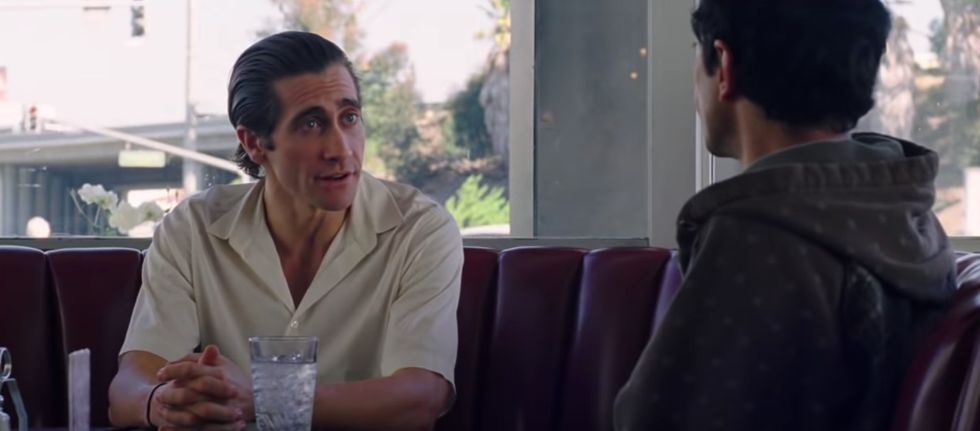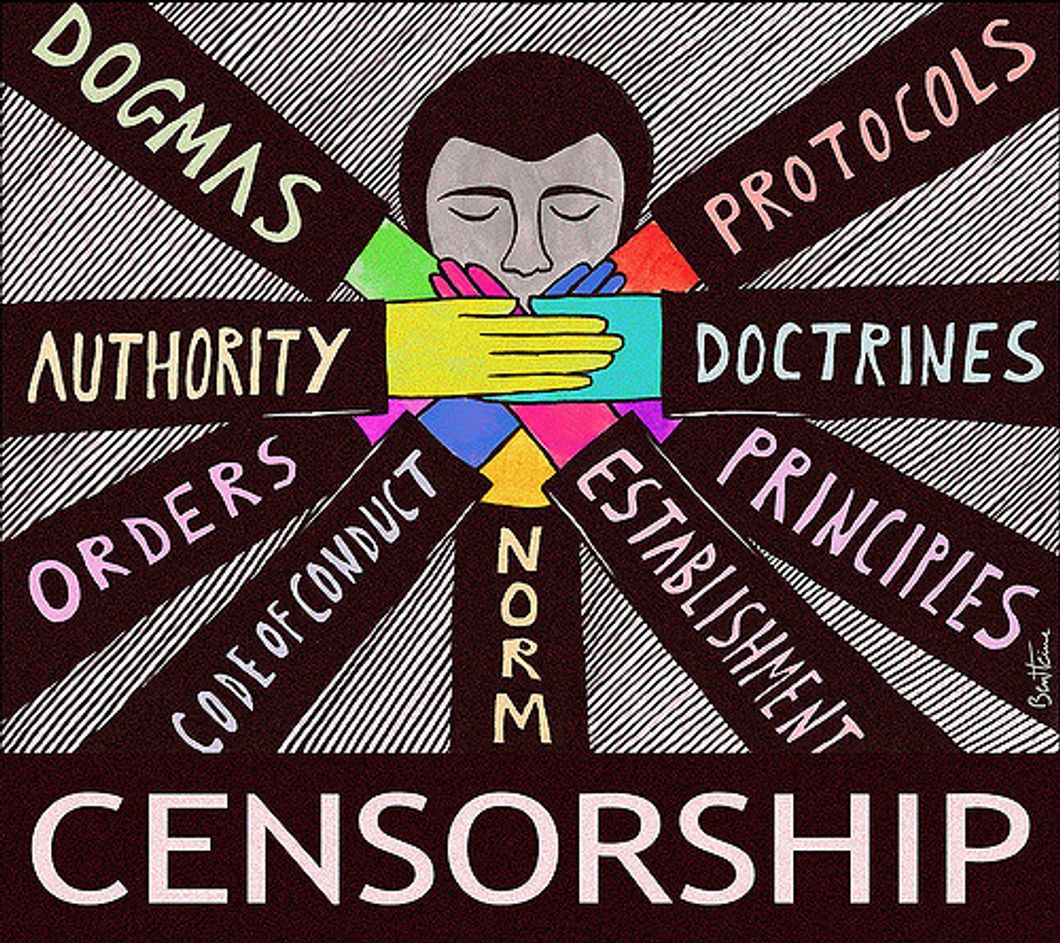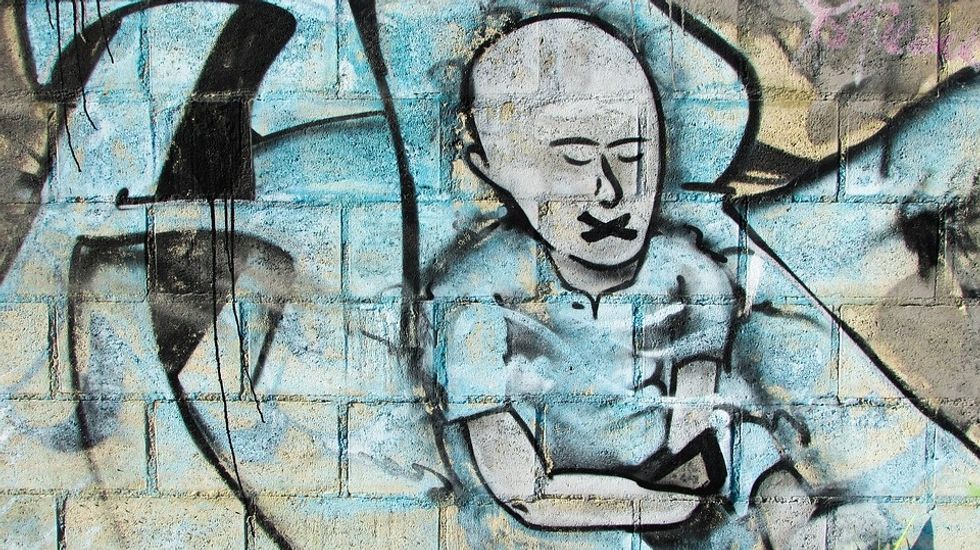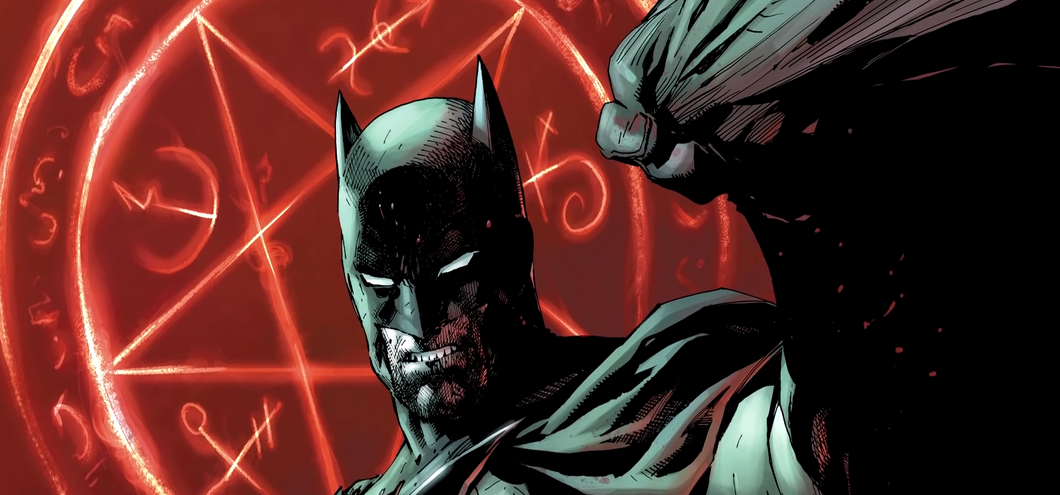'Nightcrawler' Represents Media At Its Most Cynical
Dan Gilroy's "Nightcrawler" is a morally nightmarish take on consumer culture and the dynamics behind media outlets.
Dan Gilroy's "Nightcrawler" is a morally nightmarish take on consumer culture and the dynamics behind media outlets. Jake Gyllenhaal plays "Louis Bloom" a nobody with a business-ethics mindset desperately looking for a job. Bloom then turns to gather media footage, specifically crime scenes, and selling it to local news stations to make some money....although things take a turn when he goes to extreme measures to attain footage. "Nightcrawler" represents media at its most cynical, being at the peak of inhumane media culture.
An overarching theme throughout the entire film revolves around the misuse of ethics in modern-day journalism. Bloom's character tackles an unethical approach to everything if it gathers him a successful business gain. The criteria he bases his ethics and morals are strictly business, things that will benefit him powerfully and economically. Therefore, Bloom could not care less about the story behind any of the crime scenes he filmed. For example, at one crime scene, a dead body is hidden in the dark making it difficult for Bloom to get a good shot. Bloom drags the dead body into the light so he can get a good shot of the body for the cameras. There was a lack of empathy towards the body, all Bloom could think about was getting the right footage to sell rather than the humanity of respecting the dead.
At one point in the movie, Bloom mentions an acronym titled "fear" which stands for "false evidence appearing real," which is basically in a theme of the entire movie. There even is a joke nearing the end of the film where news director, Nina, asks if she can show footage legally then proceeds to say "No morally? Of Course legally" which goes to show the nature of media outlets. They don't have any ethical reasoning for victims, they are just exploiting dead victims as a source of income to please audiences and consumer culture. Entertaining the audience is what matters, evoking emotion in them. Although the people behind the camera, probably just want a paycheck.
This movie paints the bigger picture of how messed up the media is. "Nightcrawler" definitely portrays modern-day media journalism in a negative light. The fact that controversy or graphic footage is used as an advantageous tool for ratings shows that media is basically a game of overstepping boundaries to get the rawest footage. The character Jake Gyllenhaal plays seems to be the embodiment of a media outlet as a human being. With his classic business speech, he's the epitome of a greedy corporation, a walking company of his own.
For example, nearing the end of the movie Bloom shows Nina footage of a car crash and shootout. In that footage the audience can see Bloom's partner dying from multiple gunshots, the screen is in between Nina and Bloom as they gush over how marvelous the footage is without any empathy towards the dead partner. It's a cynical and sociopathic scene on how greedy corporations can be to just make some money. Although with all this cynical behavior, it all works, Bloom is never really wrong about his facts and always gets the job done. Therefore it ponders the question if he's actually doing the right thing by playing the game of media, do people have to go to these drastic measures to be a part of media culture. It's a business game and Bloom is certainly winning.
Throughout the entire film, there is one strategy recurring in all the crime scene journalism and that's sensationalism. Media sensationalism is the use of exciting/shocking stories and language at the expense of accuracy to provoke public reaction/interest. People consume media for multiple reasons, such as being aware of society, topics of discussion, habits and etc. Therefore when a huge headline is published in the media everyone pays attention to it no matter there goal with media consumption. It's almost like advertising for viewers/ratings.
Sensationalism is all over this movie, they even poke at media fabrication when Bloom looks at a mural of Los Angeles and says out loud "Wow it looks so real on TV" implying the artificial world behind the media and its manipulation tactics on viewers. An example of sensationalization would be the staged crime scene nearing the end of the movie, the whole debacle was set-up to be covered on the media. Bloom follows the culprits to a diner just to call the police to stage a shoot-out so he can benefit his footage. Furthermore, Bloom then chases the police and culprits down in his car, still filming, reaching to a climax where he allows his partner to die to get a shot of an innocent civilian being killed in the scene. This entire crime-scene is a tool for sensationalism, as Bloom only functions on audience interest and commercial benefits. Using the dramatics of a chase scene, his partner's death and a shoot-out was all a ploy to get media eye-candy to please and guide consumer demand.
The movie even tackles the topic of censorship, and if censoring specific images really makes a difference on audience impact. In Nightcrawler there's a "horror house" crime scene where Bloom walks into a house filled with dead bodies and documents all of the corpses on camera right after the shooting occurred. Furthermore, Bloom even captures the culprits and there license plate meaning he could easily report this to the police and get those people arrested. Although as the power of media starts to take over Bloom he deletes the evidence so he can stretch this case on to obtain more media coverage as a tactic for ratings. When Bloom presents the footage to Nina, everyone in the room talks about how graphic the scene is and later conclude that they should just censor the more gory images. When the footage goes live, the censorship is merely just the most minimal amount of pixels hovering over injuries and faces of the dead victims.
It ponders the question of the significance of censorship, is it to hide the graphic images out of respect for the dead and law, or is it just another tool to make the media more watchable to consumers. There is a recurring calculating mindset throughout the movie, on how to be the director of your own journalism and lure in an audience with fallacies and headlines. An interesting observation I saw was that every single channel Bloom switched through on his TV was either an advertisement or a news channel, nothing else, showcasing consumer culture at its finest. It goes to show the world we live in and the overwhelming consumerism we abide too. This could even be compared to news outlets/entertainment outlets such as TMZ that parade their viewers inappropriately personal information on celebrities in everyday life. The vicious paparazzi that'll do anything to get some good shots for some money.
Dan Gilroy has created an amazing piece with this film, as he wanted to evoke an audience reaction that attention to sensationalism only supports unethical and inaccurate journalism. "Nightcrawler" is exhibited as a thriller, but it almost feels like a horror movie at times because of Louis Bloom's sociopathic nature. The lack of morality through the main protagonist's choices are uncomfortable and ganders a realization that media can merely be a manipulation of real-life events. It scares the audience about media, makes them questions what's accurate on CNN or how much money is a headshot of the victim's corpse going to make on specific news outlets. These business-like questions start to open up because media is a valid source of income with the expense of human morality/empathy.
"Nightcrawler" displays modern-day media coverage as a negative force in terms of accuracy and the fear of fabrication but is probably a positive force in terms of ratings, viewers, economics, and attention. Moreover, Bloom represents the grandness of capturing absurd and abhorrent footage to sell, as his motivations are almost villainous, which is exhibited on news stations like a completely natural report with nothing tweaked.
The movie does a good job of also portraying the audience to be clueless, as they just watch TV for consumer intake they don't realize the process behind it they just are slaves to the media. Overall, "Nightcrawler" is an impeccable movie that tackles unethical modern-day journalism and media consumption culture at its most extreme.


























